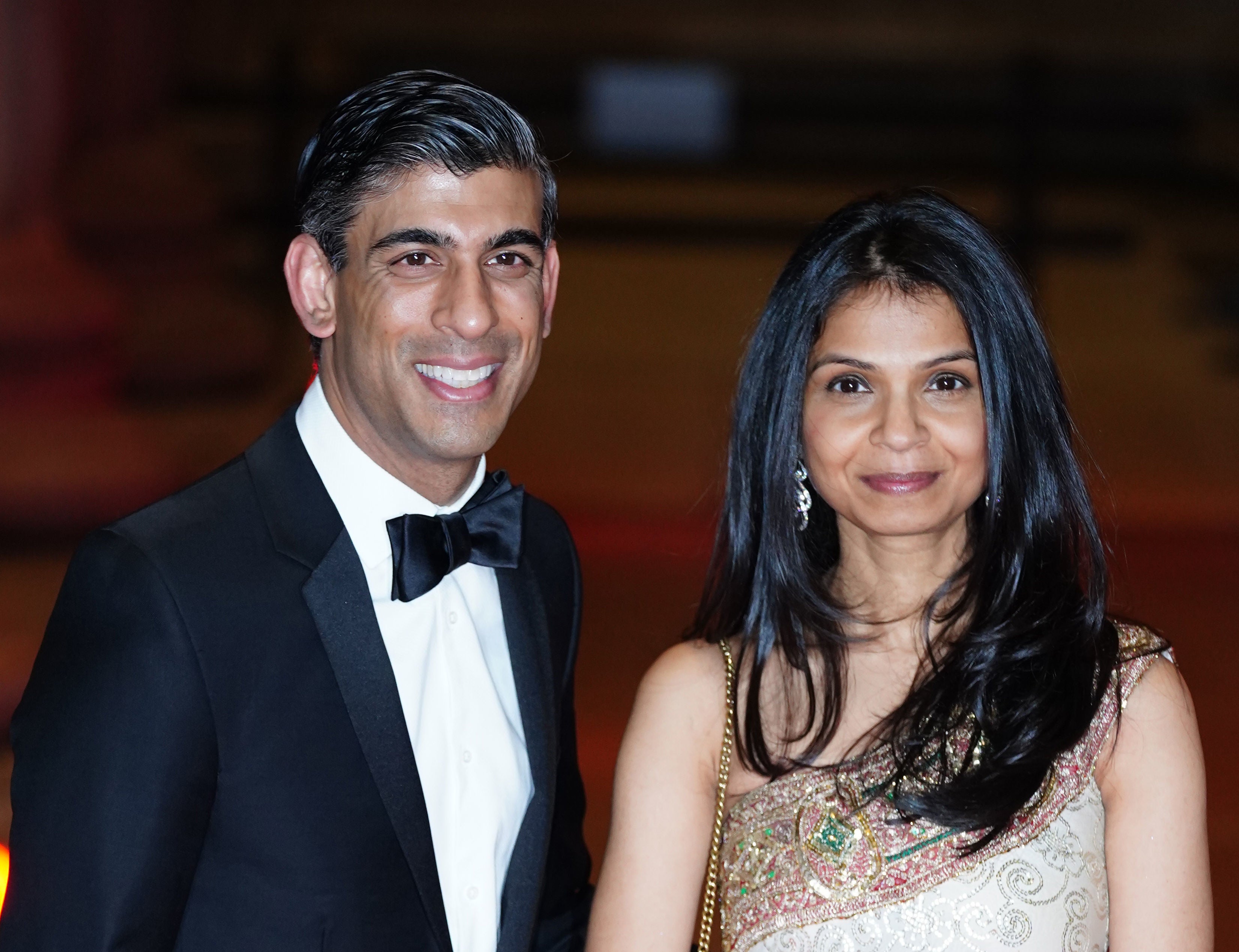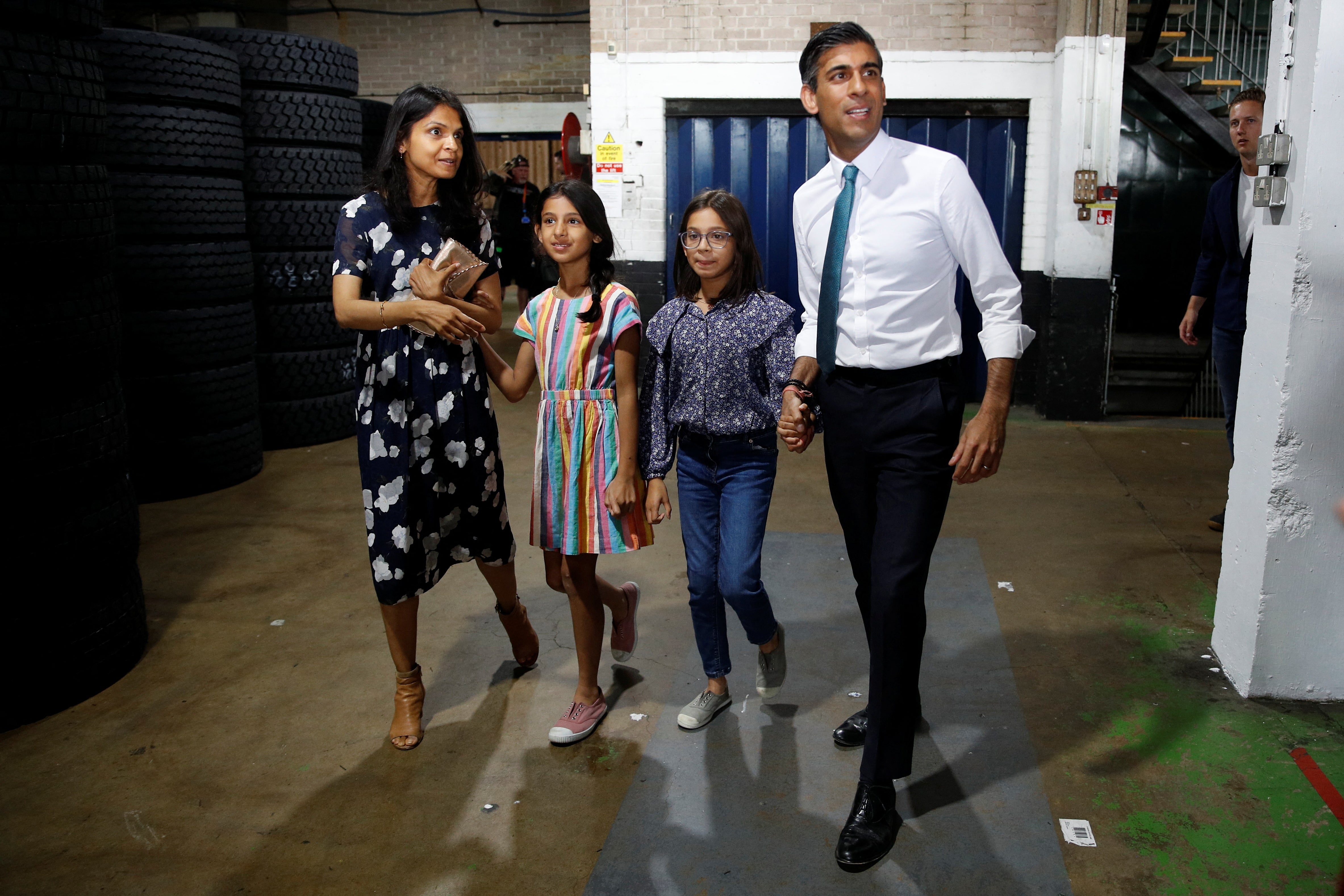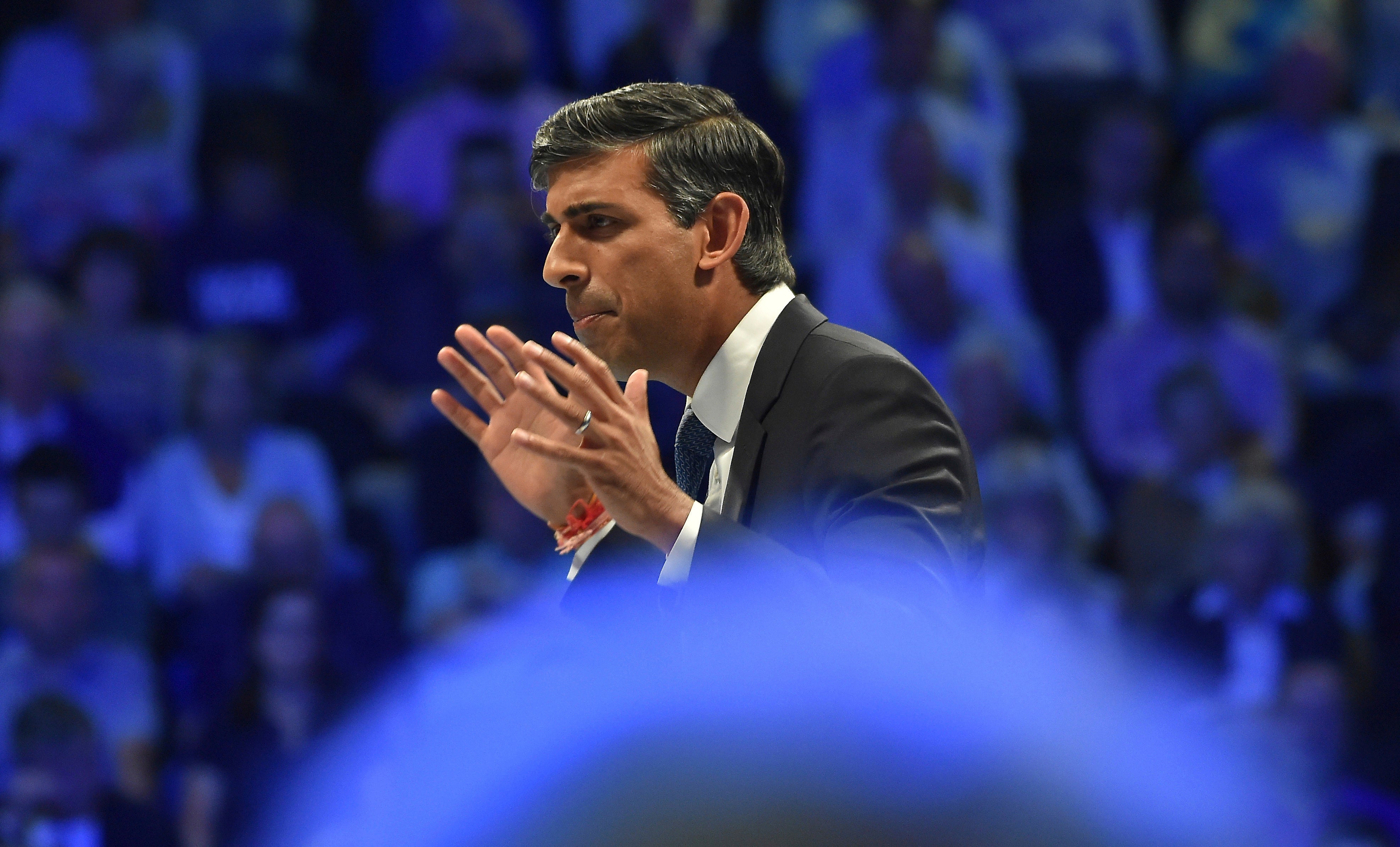Who are Rishi Sunak’s in-laws? The Indian entrepreneurs wealthier than King Charles
The personal story of Narayana Murthy, ‘the Steve Jobs of India’ and father-in-law to UK’s PM, mirrors his country’s own path to becoming a successful global IT hub
Rishi Sunak is Britain’s new prime minister and the third Tory leader to hold office in less than three months.
However the former chancellor has not had the smoothest of rides to the top job and past scandals may still come back to haunt him as prime minister. Earlier this year his tax affairs, and those of his wife, came under scrutiny after it was revealed that she had claimed non-domicile status in order to save on her tax bill.
This coincided with his being fined for attending a lockdown-breaking birthday bash in Downing Street during the Partygate scandal.
Mr Sunak is believed to be the richest man in the House of Commons, with The Sunday Times rich list valuing his and his wife’s fortune at £730m.
His initial success in Westminster stirred a wave of excitement in India, both because of his own Indian heritage and because he is married to Akshata Murthy and therefore the son-in-law of one of India’s richest businessmen, Narayana Murthy, often hailed as the father of India’s IT boom.
On Tuesday, Mr Murthy congratulated his son-in-law and said he believed he would do his best for the UK.
“Congratulations to Rishi. We are proud of him and we wish him success,” Mr Murthy was quoted as saying in a statement.
“We are confident he will do his best for the people of the United Kingdom.”
‘The Steve Jobs of India’
Narayana Murthy’s personal story tracks closely with India’s own path to becoming a successful global IT hub.
His tale of starting out with his own company using capital of just $250 and a six-person team in Pune in 1981 is a favourite rags-to-riches story in middle class families across India.
As chief executive and chairman of Infosys, Mr Murthy led the company from 1981 right up to 2014 and has built a reputation among experts and market analysts as one of the country’s greatest entrepreneurs.
“What Steve Jobs is for US, Narayana Murthy is for India,” says Trip Chaudhary of Global Equity Research.
“[IT firms like] Wipro, TCS and Infosys changed the image of India, from the land of snake charmers to a place that provides services. They have put India on the world map.”

Having built up Infosys, Mr Murthy is known for putting an emphasis on business ethics and corporate governance, at a time when nepotism was rife across many of Infosys’s competitors.
He decided to become chairman emeritus in 2014 and the company moved to appoint a new leadership entirely independent of its founders.
Shriram Subramaniam of InGovern says: “At that time Infosys was the only company in India where promoters (founders or major shareholders) took no board seats and went out completely to bring a professional CEO. But that was an experiment that failed.”
Every Indian remembers the extraordinary story of the Infosys crisis in 2017, when the executive appointed by Mr Murthy sensationally stood down.
Vishal Sikka resigned after citing a “drumbeat of distractions” and “false, baseless, malicious and increasingly personal attacks” as his reasons for leaving – the heavy implication being interference in the background from Mr Murthy, clearly unwilling to let go of the reins.
Mr Subramaniam believes the incident should be seen as just a blip in the company’s history.

“Narayana Murthy has his own set of weaknesses as well... [yes] he was a micromanager, but he had no active role in the company after 2014.”
Asked if the company always lived up to the ethical business practices that Mr Murthy himself talks about from time to time, Mr Chaudhary takes a pragmatic approach.
“We must celebrate the success of a company, but nobody got success without breaking rules and status quo,” he says.
“If someone wants to glorify [businessmen] like Harishchandra [a mythological character known for only speaking truth] then it’s their problem,” he says.
The 75-year-old Mr Murthy is now retired and with his minority stake in Infosys has an estimated net worth of around $2.5bn (£2.1bn), according to the Forbes 100 Richest Indians list.
Ms Murthy’s investments
The Murthy family was last in the news in the UK in December 2020 because of calls upon the UK government’s ethics watchdog to investigate Mr Sunak after a Guardian story suggested the chancellor did not declare his wife’s multi-million dollar business portfolio in the official register of ministerial interests.
The newspaper also reported that a series of investments were bought by Ms Murthy through a company called International Market Management (IMM), which manages a chain of restaurants and funnels investments through Mauritius to reduce taxes paid in India.
Her other business interests include Catamaran Ventures, which gains from Amazon Cloudtails.
Through Catamaran, Ms Murty also has direct holdings in at least six UK companies – Digme Fitness, Jamie’s Italian, Jamie’s Pizzeria, New & Lingwood, Soroco and Wendy’s.
Questions were raised about Mr Sunak’s failure to declare these interests – but for analysts, the way Akshata Murty has handled her business would be seen as regular practices by many.
Talking about her wealth, Mohandas Pai – a former director of Infosys – says: “Akshata Murthy is a UK resident, not a taxpayer in India. She is independently wealthy. She has been wealthy for a very long period of time.
“She had her shares in Infosys right from the time she was a child. And I am sure that she manages her tax affairs very well following the Western practices.”
According to The Guardian, Ms Murty bought a five per cent share in IMM for £500,000 in 2014.
Instead of investing directly in the two Indian subsidiaries that operate its restaurants, according to the report, IMM funnelled the money raised from its shareholders through an intermediary company in Mauritius.
The move, which is not illegal, means the company ends up reducing payable taxes on profits in India.

It neither has to pay the 20 per cent capital gains tax and its tax on dividends also goes down from 10 per cent to five per cent.
The holdings were never likely to prove problematic for the Murthy family, given the strength of its reputation in India, built up over decades, but their huge wealth could continue to create problems for Mr Sunak should he make a future run for the Tory leadership, a a member of a super-rich elite pitching to lead Britain through a brutal cost of living crisis.
A spokesperson for the Murthy family declined to comment on the Guardian report when contacted by The Independent.
Mixed reactions in India
While Mr Sunak’s elevation to the top job has been received warmly by several Indians, it has also triggered a political debate on India’s own politics.
As Britain’s first Hindu prime minister of Indian origin, several members of India’s political right as well as the ruling Hindu nationalist Bharatiya Janata Part (BJP) hailed Mr Sunak.
While the right celebrated Mr Sunak’s Indian roots, several analysts were quick to point out that Mr Sunak was a British national and only had Indian origins.
The opposition in the country, however, lashed out at the Narendra Modi-led government for hailing Mr Sunak while minorities face continued persecution under his rule.
Shashi Tharoor, MP from the Congress party and former UN diplomat, said while Mr Sunak represents an important moment in British history where a member of the minority community can be elevated to the post of the prime minister, he questioned if this “can happen” in India.
Join our commenting forum
Join thought-provoking conversations, follow other Independent readers and see their replies
Comments
Bookmark popover
Removed from bookmarks